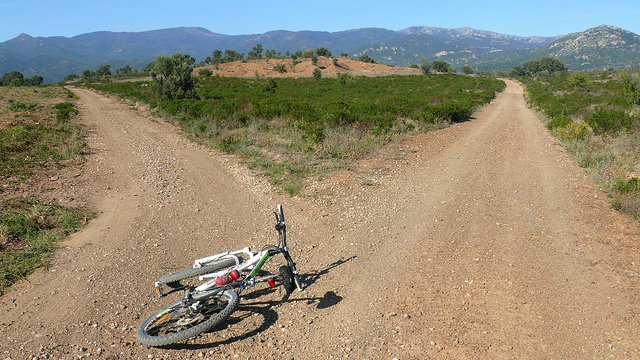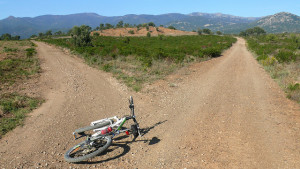I’ve had times when I was faced with two very important things, or people, and with the dilemma of what to do first, or where to spend more time. How can your choices become simple?
We all have a lot of what’s important in our lives. It can be hard to determine what comes first, and what’s most important, and to stick to them, even amidst the cries for attention of the others.
Choices become simple, when faced with this:
Death.
A mentor of mine shared that she’s living a happier life now, doing what matters most to her, and attending to what and who is most important in her life. All of this realized, shaken out of her, because she was faced with the possibility of death.
She was faced with a near-death experience, rushed to the hospital, gasping for breath, life flashing before her eyes. She told me that as that happened, and the scenes played back, she felt a sadness inside of her. “Is this it? Am I happy with what I have done so far with my life?”
And after surviving that experience, she then started to choose differently. Her life’s choices, her direction, and many of the decisions she made, now with more vision, purpose, focus, and meaning for her.
Right now, she says she’s earning less, but she’s doing what matters most to her, and she wouldn’t have it any other way.
What if there was no tomorrow for you?
When faced with your life ending tomorrow, maybe a lot of us would choose to spend our day differently.
What becomes important for us then rises to the top of the list.
It no longer becomes about what’s urgent. What’s important to you has to happen right now. You’d want it to happen right now, if today were your last day, your last moment.
What’s superficial will just fall away, slowly be pushed out of your head by the impending end of your life, and with what you want to achieve and get in the final few moments.
Another friend of mine was diagnosed with a terminal liver disease, and was told that he only had 6 months to live, at best.
Faced with that reality, he fought the disease hard, and began to choose what’s important to him. He shared that it was easier to make choices in the day-to-day, in the moment, when he knew that he had to make every choice, every moment count.
It was by no small miracle that he survived, and that experience, and the realization of what’s important for him, and how to choose and honor those in every moment, is still a very big part of who he is, and how he lives his life.
Maybe it was his choosing what was truly important for him above all else that saved him.
Your true priorities, intentions, and what’s important to you become clearer and easier to discern when faced with a non-negotiable finish line.
Choose the important over the urgent.
Because no one on their deathbed ever regretted doing too much overtime.
Usually, people regret not spending enough time with family, loved ones, not taking the risks of going after their dreams.
People regret honoring what’s truly important for them.
When faced with the option of tomorrow, we tend to push back what’s important, but not urgent.
The urgent and the alarming call of the what-has-to-happen-now beats back and crowds out what is important for us, but takes time to plan, prepare, and accomplish.
Things, opportunities, people, that we feel will still be there tomorrow. These all get pushed back, left, and even, neglected. Taken for granted, thinking that they will still be there tomorrow.
Until that day comes when they aren’t. When they have left. When the damage, the hurt, and the pain, becomes too heavy, irreparable.
Choices become simple when there’s a non-negotiable deadline, like death.
There will always be urgent matters for us to take care of. Life is a never-ending series of challenges. But do we act, choose, and stay with what’s most important to us? What it is that we can’t live without? What it is that we want to be doing every single day of our lives.
Choose what’s important, before they become urgent. Before they become lost.
If you knew when you would die, how would you live your life?
What would you choose to do this very moment?
Who would you choose to spend that time with?
Would how you spend your days change?
Would they spend the same?
And would you be happy?
Would you be proud of how you lived your life today, if you knew you were going to die tomorrow?
How would you want to be remembered?
How would you make your choices?
Would you have a harder time making them?
Because in the face of death, choices become simple.
And I hope, we don’t wait till we’re near death to make them.
What’s something important that you would want to choose and spend more time with? Please share in the comments below!


I agree that meaningful change begins with a serious contemplation of mortality. It forces people to shift their priorities and make new decisions. I usually do a mental exercise every week wherein I imagine having only six months to live and analyzing every plan and action using that lens. It’s very effective in shaking me up before something truly lethal happens unexpectedly.